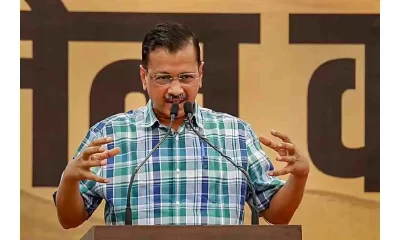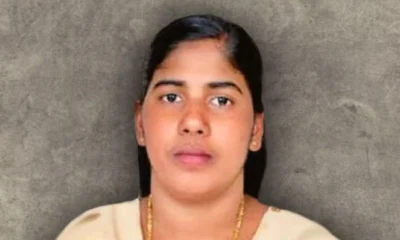India News
US airstrikes in Yemen: 31 killed after Donald Trump launches large-scale strikes on Houthis
He also criticized his predecessor, Joe Biden, for failing to take decisive action against the Houthis.

India News
Shashi Tharoor questions Centre over Kerala name change to Keralam
Shashi Tharoor has criticised the Centre’s decision to approve renaming Kerala as Keralam, questioning its impact and pointing to the lack of major projects for the state.
India News
Tamil Nadu potboiler: Now, Sasikala to launch new party ahead of election
Sasikala has announced the launch of a new political party ahead of the Tamil Nadu Assembly elections, positioning herself against AIADMK chief Edappadi K Palaniswami.
India News
As stealth reshapes air combat, India weighs induction of Sukhoi Su-57 jets
India is assessing the possible induction of up to 40 Sukhoi Su-57 fifth-generation fighter jets as stealth becomes central to future air combat strategy.
-

 India News20 hours ago
India News20 hours agoAs stealth reshapes air combat, India weighs induction of Sukhoi Su-57 jets
-

 Cricket news19 hours ago
Cricket news19 hours agoRinku Singh returns home from T20 World Cup camp due to family emergency
-

 India News18 hours ago
India News18 hours agoTamil Nadu potboiler: Now, Sasikala to launch new party ahead of election
-

 Latest world news6 hours ago
Latest world news6 hours agoTrump says tariffs will replace income tax, criticises Supreme Court setback in key address
-

 Latest world news6 hours ago
Latest world news6 hours agoTrump repeats claim of averting India-Pakistan nuclear war during Operation Sindoor
-

 Latest world news6 hours ago
Latest world news6 hours agoPM Modi to begin two-day Israel visit, defence and trade in focus
-

 India News6 hours ago
India News6 hours agoShashi Tharoor questions Centre over Kerala name change to Keralam













